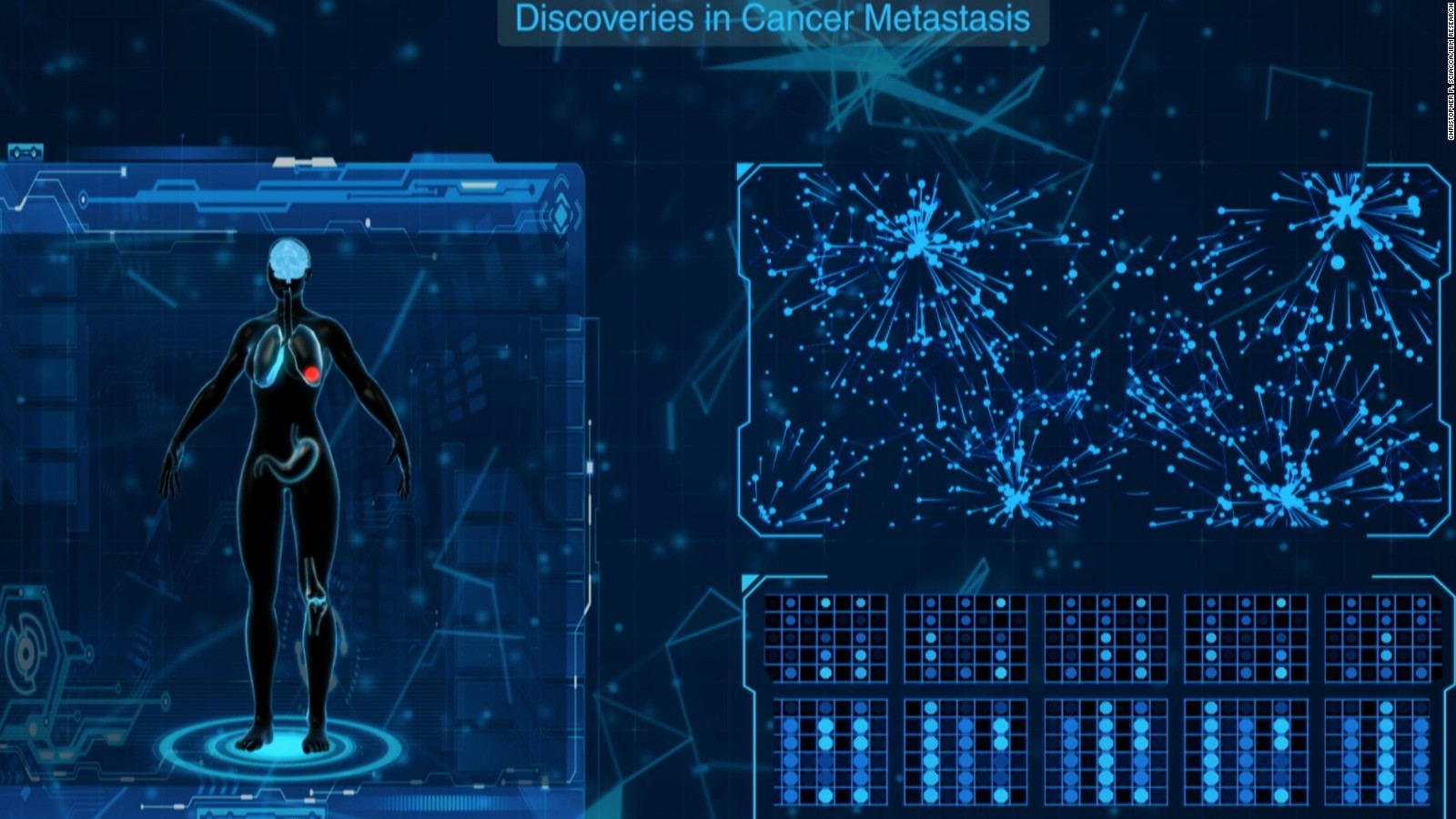Geoffrey Siwo, research scientist at IBM analysis Africa and his crew in Johannesburg were aiming to foretell and attempt to solve Africa's future fitness concerns.
Such ambitious beliefs meant they needed to delivery noticing tendencies in the vicinity-- one being that in some African international locations the inhabitants changed into becoming wealthier and getting old slowly, despite the fact the burden of melanoma became superior.The group became fascinated about how cancer begins to engage with different diseases ordinary in the location, reminiscent of malaria.
diverse gene
using publicly attainable facts they attempted to map how cancer spreads during the physique, in what's known as metastasis. among the many facts they stumbled upon anything wonderful -- a gene possibly linking people whose cancers lead to metastasis, certainly in breast cancer patients, and americans showing resistance to malaria.
records mapping cancer metastasis. Africans tend to have one class of the DARC variant which ends up in P. vivax resistance.
Many Africans have a definite sort of the Duffy Antigen Receptor [DARC] gene compared to different world populations.A mutation of this gene, "makes most Africans much less at risk of a kind of malaria brought about via [the parasite] Plasmodium vivax," Siwo advised CNN.
DARC encodes a protein this is used by using the parasite to get into human red blood cells. Most Africans have a mutation of this gene that does not enable it to be expressed in red blood cells, and therefore the parasite finds it difficult to get into the purple blood cells of these people -- giving those with the mutation a high level of resistance.
it be unimaginable to grasp accurate population figures for the DARC variant but frequency fees are thought to be around 95% in West Africa, and between 70 to 95% in sub-Saharan Africa.Siwo and his team discovered that in some patients these with this inbuilt resistance had decrease survival prices for breast cancer than these devoid of.
The analysis and findings were these days introduced at the American Society for Human Genetics symposium on Pharmacogenomics, and may be posted subsequent year.potential for personalised therapy
A mutation within the DARC gene and its advantage link with cancer consequences is "very entertaining" says Dr Sarah Tishkoff, a professor of genetics and biology on the university of Pennsylvania. it is "of advantage excessive importance, specially given accompanied ameliorations in melanoma chance among different ethnic groups," she adds.
"If this variant does play a role in cancer metastasis, it would be an example where a genetic variant which rises to excessive frequency because of protection from malaria may also also be linked to ailment possibility", she provides.
Dr Tishkoff suggests negative outcomes have been typical for other malaria resistance genes for instance those associated with Sickle mobilephone Anemia. but extra proof is needed she notes on even if it directly impacts cancer statistics.
identical stories, for instance research carried out in China, presumed that a scarcity of DARC expression predisposes African American men to a more desirable incidence and mortality of prostate melanoma, in addition to an identical correlation between the DARC variant and breast cancer deaths."It can be further explored by using future reviews in Africa attempting to find correlations between adaptation at this gene and [the] possibility of melanoma," says Dr Tishkoff.
Siwo is of the same opinion that greater analysis is required, which the crew intends to perform, however he's enthusiastic on competencies findings. "The potential that low expression of DARC could influence breast cancer effects, chiefly in some breast cancer sufferers potential that in future it could doubtlessly be used for personalizing therapy or precision drugs," he says.
cancer, regularly diagnosed late
"The authentic extent of cancer [within Africa] has not been realized because it is commonly clinically determined at the late degrees," provides Siwo.
In South Africa, there's a five-yr lag time between hospitals recording a cancer prognosis and it being documented in annual country wide statistics of new circumstances.
"That capability, the cancer facts we have for South Africa today is outdated by means of about 5 years, an issue that additionally occurs in all different countries however with a lesser lengthen," says Siwo.
The group desires to work towards quicker facts collection inside South Africa and greater greatly throughout the continent. with the aid of tracking facts digitally and pooling efforts throughout Africa, we are able to try and increase this, explains Siwo.
His crew is working with the South African countrywide cancer Registry and the institution of Witswaterand in Johannesburg to strengthen a gadget that could instantly collate the mandatory melanoma statistics in a shorter time frame.
greater entry to know-how ability "we are solving problems in Africa in a way we certainly not notion viable before," he says.
Siwo believes ailments comparable to cancer will beginning to affect Africa extra so than in different places if not correctly tackled. there's a much broader reach to are trying and get more of Africa's budding scientists concerned in focused options through geared up hackathons and difficulty-fixing workshops inside South Africa.
"We are trying to locate lengthy-time period options," says Siwo. "New methods of addressing and treating melanoma, TB, AIDS, HIV -- these answers can handiest be discovered throughout the engagement of young scientists in Africa."
0 komentar:
Posting Komentar